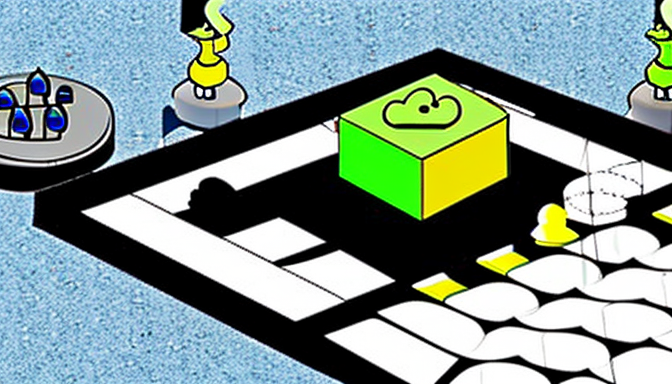Welcome to the fascinating world of game tactics! Here, strategy is not just a buzzword; it’s the essence of gameplay. Think about it: every time you pick up a controller or sit down at a table, you’re diving into a realm of decisions that can change everything. From the first move in chess to the last-second play in football, strategy shapes the outcome. It’s like a dance, where every step matters and timing is crucial.
So, what makes a strategy effective? It often boils down to understanding the formation and the decisions made by players and managers alike. For example, in soccer, a 4-3-3 formation can provide both offensive firepower and defensive stability. Players need to know when to press forward and when to hold back. This balance is crucial. Each choice can lead to victory or defeat.
Let’s break it down a bit further. Here are some key components that influence game tactics:
- Player Roles: Each player has a specific role that contributes to the overall strategy.
- Adaptability: Good strategies can change based on the opponent’s moves.
- Communication: Teams that talk to each other often perform better.
In essence, understanding these elements can enhance your gameplay. It’s not just about winning; it’s about enjoying the journey and making smart choices along the way. So, the next time you engage in a game, think about the strategy behind your moves. It could make all the difference!
Theories of Game Strategy
Understanding the is like peeling back the layers of an onion. Each layer reveals something new about how players think and act during gameplay. It’s not just about winning; it’s about refining your approach to make the game more enjoyable and competitive.
At the core of game strategy are several key concepts that shape how players make decisions. For instance, formations in strategy games often dictate the flow of play. A well-structured formation can mean the difference between a victory and a loss. Consider how different games utilize formations:
| Game Genre | Common Formations | Purpose |
|---|---|---|
| Sports | 4-4-2, 3-5-2 | Balance offense and defense |
| Real-Time Strategy | Rush, Turtle | Control resources and map |
| Role-Playing Games | Tank, DPS, Support | Team synergy |
Moreover, the decisions made by game managers or leaders are crucial. They must analyze the situation, predict opponents’ moves, and adjust strategies on the fly. This dynamic nature of strategy keeps players engaged and adds a layer of excitement. Think about it: have you ever found yourself changing your strategy mid-game because your opponent surprised you? It’s a thrilling experience!
In conclusion, the theories of game strategy are not just abstract concepts. They are practical tools that can enhance your gameplay. By understanding formations and decision-making processes, players can elevate their game and enjoy a richer experience.

Psychology of Player Decisions
The world of gaming isn’t just about flashy graphics or complex mechanics. It’s deeply rooted in the psychology of player decisions. Every choice you make in a game can stem from a mix of emotions, biases, and social influences. Imagine you’re playing a strategy game. You face a tough decision: do you attack now or wait? Your choice isn’t just strategic; it’s emotional. Maybe you’re feeling bold or perhaps a bit anxious. These feelings can sway your decision more than you realize.
Cognitive biases also play a huge role. For instance, the confirmation bias can lead players to favor information that supports their existing beliefs. If you think a certain strategy is effective, you might ignore evidence that suggests otherwise. This can skew your gameplay and limit your growth. On the flip side, understanding these biases can help you make better choices. Recognizing when you’re being influenced by emotions or biases is key to improving your game.
Social dynamics add another layer. In multiplayer games, the decisions of others can impact your choices. If your teammates are overly aggressive, you might feel pressured to follow suit, even if it’s not the best tactic. This pressure can lead to risky plays that might not align with your strategic goals. It’s like being in a team sport where everyone’s energy can lift you up or drag you down.
Ultimately, the psychology behind player decisions shapes the gaming experience. By understanding these factors, players can refine their strategies and enhance their enjoyment. The next time you’re faced with a choice in a game, take a moment to reflect. What’s driving your decision? Is it logic, emotion, or perhaps the influence of your peers? The answers might surprise you!
Frequently Asked Questions
- What is the importance of strategy in gaming?
Strategy is like the backbone of any game; it shapes how you approach challenges and interact with other players. Without a solid strategy, you might find yourself lost, much like a ship without a compass!
- How do psychological factors influence player decisions?
Psychological factors are huge! They can sway your decisions just like a friend convincing you to try a new restaurant. Emotions, cognitive biases, and even peer pressure can lead to unexpected choices that impact your gameplay.
- Can I improve my game strategy over time?
Absolutely! Think of it like building muscle; the more you practice and analyze your gameplay, the stronger your strategy becomes. Learning from each game is key to leveling up your skills!
- What are some common strategic theories in gaming?
There are several, but some popular ones include game theory, which analyzes competitive situations, and the Nash equilibrium, where players settle on strategies that yield the best outcomes for everyone involved.